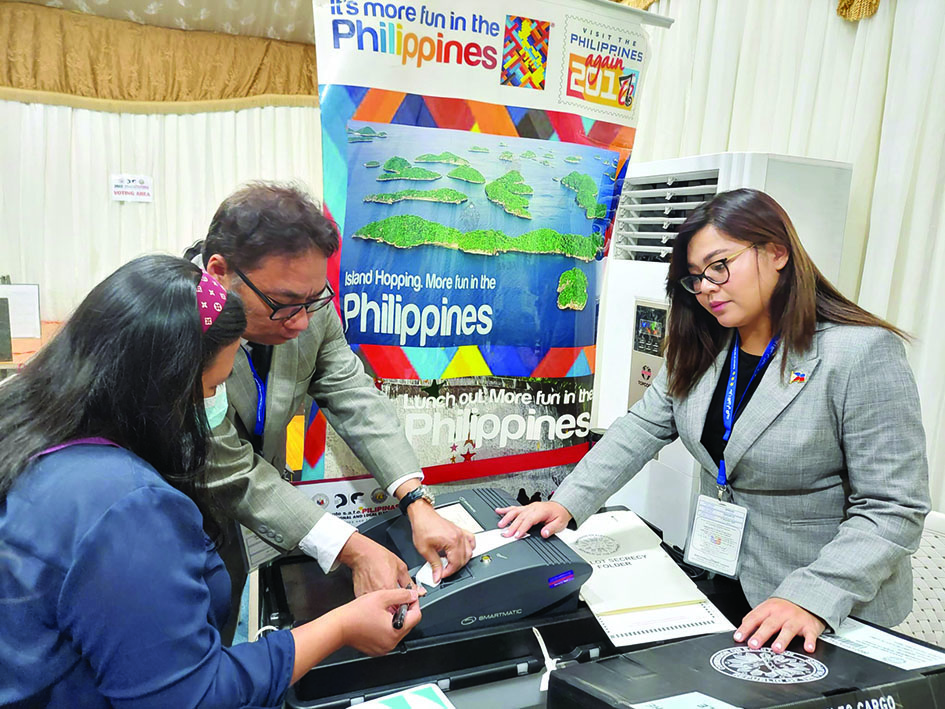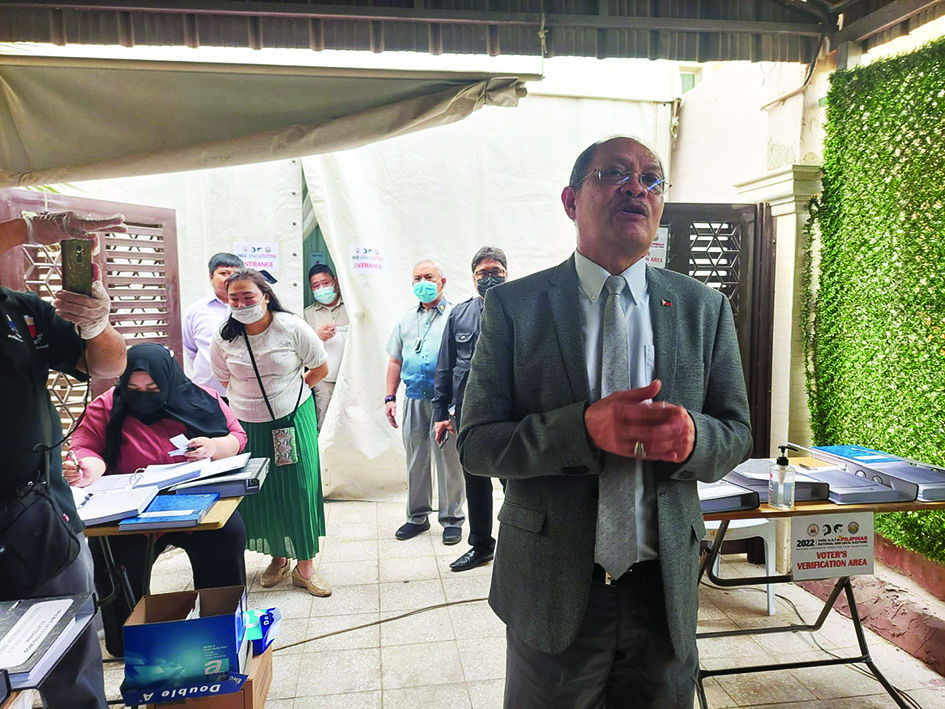By Ben Garcia
KUWAIT: A 30-day period given to Overseas Filipino Workers (OFWs) to cast their votes for president, vice president, senators and a party list representative under the Philippines' Overseas Absentee Voting law kicked off yesterday at the Philippine Embassy in Kuwait. Filipinos all over the world have the right to elect their national leaders by casting their ballots at their embassies or consular offices abroad.
Frontrunner Ferdinand "Bongbong" Marcos Jr, son of former dictator Ferdinand Marcos, is heading pre-election surveys back home and also in Kuwait, based on exit polls conducted by Kuwait Times on the first day of voting. His closest rival, the current Vice President Leni Robredo, is lagging far behind Marcos in surveys.
Filipinos thronged the embassy as early as 7:00 am. The election process started exactly at 8:00 am, with Ambassador Mohammad Noordin Pendosina Lomondot as the first voter. "I vote first not because I am your ambassador, but also to set as example for all Filipinos in Kuwait. I call upon Filipinos in Kuwait to come forward and exercise their rights of suffrage and vote according to their conscience," he said. Filipinos can vote provided they are registered as overseas voters through the registration conducted by the Commission on Elections (Comelec), which is in charge of all election proceedings.
 From the voting process.
From the voting process.Overseas voting will continue until May 9, 2022 - Election Day in the Philippines. There are 10 candidates for president - Robredo, Marcos Jr, Isko Moreno Domagoso, Manny Pacquiao, Leody de Guzman, Norberto Gonzalez, Jose Montemayor, Faisal Mangondato, Ping Lacson and Ernesto Abella. There are seven candidates for vice president - Sara Duterte-Carpio, daughter of President Rodrigo Duterte, Willy Ong, Lito Atienza, Kiko Pangilinan, Walden Bello, Carlos Serapio and Tito Sotto. Overseas voters can also vote for 12 senators and at least one party list representative.
Big change
One of the early voters interviewed by the Kuwait Times said she voted for a candidate who will continue the projects of the current president. "We have witnessed a big change during the leadership of President Duterte. Filipinos are thankful for his leadership. There are more projects underway under this current administration than ever before. If the president who succeeds him is not supportive of him, those projects will be put on the backburner and progress will be hampered," said Zenaida Taberna, the second Filipino who voted after the ambassador.
 Voters are seen at the embassy premises.
Voters are seen at the embassy premises.Third in line Meliza Salas said she wanted to cast her vote on the first day since she is heading for vacation to the Philippines on Friday. "I want a president who is almost like Duterte. Even if he (Bongbong) is not endorsed by Duterte, he is running on a ticket with Duterte's daughter. I also voted for him because he said he will not turn over President Duterte to the ICC for allegedly committing crimes against humanity. I even want him to stay as president for life," Salas said.
There are millions of Filipinos abroad and based on Comelec records, as of Oct 2021, there are 1.7 million registered as Overseas Absentee Voters (OAVs). In Kuwait, there are more 230,000 Filipinos; however, only half of the number were able to register and only around 82,000 were approved by the election body, as per Ambassador Lomondot.
The Overseas Absentee Voting Act is a law in the Philippines passed on Feb 13, 2003, which provides for a system for citizens of the Philippines residing or working outside the Philippines to vote in an election. The process is implemented by Comelec with the help of the Department of Foreign Affairs.











